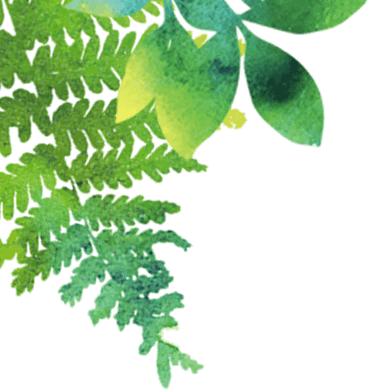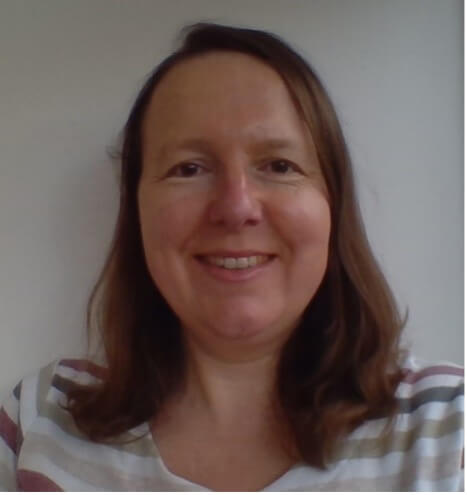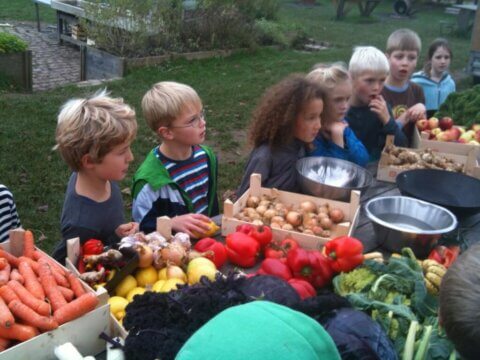Nurturing families’ confidence to explore natural places — together
In this three-part series, Rosalind Allen, Education and Families Development Officer for the RSPB (Royal Society for the Protection of Birds, the U.K.’s largest nature conservation charity), shares her experiences during her recent sabbatical to the U.S. Rosalind embarked on the sabbatical to learn about the different approaches that organizations take to connecting families with nature, with a focus on families who face multiple barriers to equitable access to nature.
This is the second installment of the series. You can read the first installment here.
As well as touring revitalised urban spaces and learning about the importance of community involvement in such projects (see my first blog for more), I wanted to learn about programmes and activities that help families to connect with nature in their local greenspaces.
I connected with several US organisations to find out how they are building families’ confidence to get out and explore nature — addressing barriers such as safety concerns and a lack of awareness of activities to do in nature. I explored how the motivations of being sociable with other families and exercising outdoors can help to deepen families’ connection with nature. This theme was framed by the Children & Nature Network’s support of Family Nature Clubs, which are self-organised, self-directed clubs where like-minded friends and families gather to spend time together outdoors.
Essex County Turtle Back Zoo in West Orange, New Jersey initially seemed an unlikely place to start, but I had already learnt a little about their Family Nature Clubs (FNC). My tour companion Kristy Omelianuk, Network Engagement Manager for the Children & Nature Network, and I met with two Turtle Back Zoo staff to learn more about the zoo’s work helping families connect with local nature: Marguerite Hunt, Curator of Education, and Katie Fenyar, Education Specialist. Katie leads Nature Adventures, fortnightly themed hikes that are part of their Family Nature Club programme. On these hikes, which take place at various Essex County parks, Katie guides and encourages families to explore and observe nature together. Marguerite explained that Katie’s gentle, calm and serene yet enthusiastic manner enables families to grow in confidence as they discover new things about wildlife and develop the skills to know what to look for and understand more about what they find. During the club gatherings, Katie uses identification apps to help families learn to identify species.

Katie Fenyar of Turtle Back Zoo showing Kristy where she helps families look for salamanders during Family Nature Club Hikes
Originally funded through a partnership with the Children & Nature Network and the Association of Zoos and Aquariums (AZA), the current informal, playful approach to experiencing the outdoors is guided by the nature they notice or find and the families’ interests. Katie showed us a few of the routes she uses, pointing out features where she will often pause to encourage families to investigate in a range of ways — for example observing how a tree grows, lifting a log to discover invertebrates (or “minibeasts,” as we often call them in the UK!), balancing on rocks to cross a stream where salamanders hide and using paper and crayons to do a rubbing of the distinctive patterns of Turtle Back Rock. Whilst Katie’s expert knowledge undoubtedly enhances the experience, these simple yet effective activities on publicly accessible land allow families to realise that they can do nature discovery in their own time — they often comment that they plan to return to the trail with friends, and the skills they develop can be used to enjoy nature at other natural sites. The cost of these sessions is likely to be a barrier to some families; the zoo has tried different initiatives to enable families on a tight budget to participate, including grant-funded local partnerships.

Hike it Baby Ambassador Kati Austgen on a trail at Rock Creek Park, Washington DC
When families become more confident outdoors in nature, their contact with nature is likely to be repeated and sustained, which leads to deeper connection and stronger motivation to take action for nature. By providing welcoming opportunities for families to walk together, the US-wide organisation Hike it Baby enables more families with babies and young children to enjoy the outdoors. This approach addresses one barrier to families visiting greenspaces — safety concerns — whilst also appealing to the motivations of wanting to socialise with others and stay healthy through regular exercise.
In Washington DC, I met with Hike it Baby Ambassadors Kati Austgen and Karole Fristensky — volunteers who locally represent this nationwide organisation. I explored several trails used by Hike it Baby across Washington DC and was impressed by the variety of greenspaces available; from the wild extensive Rock Creek Park and the manicured United States Botanic Gardens to the boardwalk along the Anacostia River and Kenilworth Aquatic Gardens to the east. The Hike it Baby walks are free and sites with no entrance charge are used, improving inclusivity for those on tight budgets. Some locations have reasonable public transport provision, enabling families without cars to attend, and rotating venues attract families that live close by, although some families travel from further afield.

The Anacostia River Trail in Washington DC
Kati and Karole stressed the importance of providing enough detailed information for a family to know what to expect and decide if the walk will suit them, including how far the walk will be, the type of terrain (is it buggy friendly?), if restroom facilities will be available and whether there are any additional opportunities or activities en-route. In general, nature-based activities are not formally planned into the walks — they just discover nature along the way — although I learnt that attendance improves when an activity is included and advertised. I surmised that including activities in the walk helps broaden the appeal — families that already walk together join the guided trip for something different, whilst those less used to being in nature come for an activity that is part of the walk.
This brought me back to thinking about the potential value of activity resources that could enable community organisations to offer fun family activities and outings. Such activities and outings could help with the initial push to get families outdoors and connecting with local nature, and could inspire groups of families to explore together through self-led family nature clubs. Resources could include guidance to help a range of groups to build appropriate activities into their programming as a way of furthering their impact. The benefits would be threefold — benefiting the organisations, local families and nature. If organisations can incorporate simple yet engaging nature-based activities for families, they may attract a wider audience, in turn increasing support for their group and deepening participants’ connection with nature.
Organizations that Rosalind connected with:
For a deeper dive into the topics explored in this piece:
- Our Families page for activities and other family-oriented resources
- Nature Activity Cards, inspiring cards with themed activities for children ages 2-6 and 7-11
- Together in Nature: Pathways to a Stronger, Closer Family, a report about the benefits that nature has for families (also available in Spanish and French)
- Vitamin N Challenge, a fun, open-ended way to help you and your family get plenty of Vitamin N (nature!)
- Nature Quest: An outdoor gaming adventure for families, a Finding Nature News feature about gamifying the outdoors
- Nature Quest toolkit, containing activities, helpful videos, lesson objections and more
- Family nature play & you: eGuide for families, published by the Association of Zoos & Aquariums with concept development and content by the Children & Nature Network
- Let the story be your guide, a Finding Nature News feature about how one environmental education center created an innovative new outdoor activity to help local families connect with nature
- Families at leisure outdoors: Well-being through adventure, a summary of a scientific study that found that shared outdoor adventures can help create, maintain and enhance family well-being
-
Feature
GROWING POWER: Urban Roots connects young people with natural spaces, food systems – and one another
-
Feature
Nature photographer Dudley Edmondson has a vision for the representation of Black and Brown faces in the outdoors
-
Network News
Community Spotlight: Prescribe Outside
-
Richard Louv
SPRING FORWARD! 12 Ways to Make Sure Your Kids (and You) Get the Right Dose of VITAMIN N this Spring — and Summer, Too
-
Voices
Placemaking: How to build kinship and inclusive park spaces for children with disabilities






